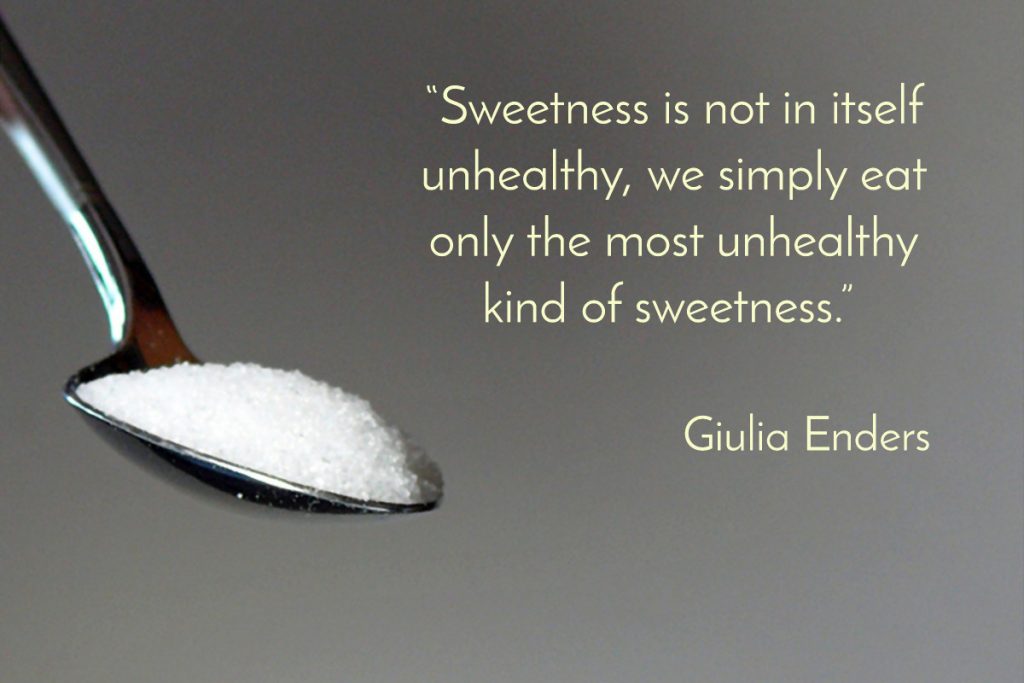
I have a sweet tooth and reducing the amount of sugar I consume has been difficult. There are however, many alternative sweeteners to sugar available, but it's not always easy to decide out which sugar replacement to use to help you lose weight.
What should we look for in a healthy sweetener?
Blood sugar levels are one of the critical factor in maintaining a healthy weight. Many diet books advocate the use of honey as a replacement for sugar, and it's true that honey is better for you than refined white sugar, eating it still has a significant effect on blood sugar levels, as this tweet from nutritionist JJ Smith shows.
Still struggling to lose weight? Read up on your #sugars and #sweeteners!! What sweetener do you use? #weightloss #fitness #getfit pic.twitter.com/NdbLXcaeXq
— JJ Smith (@JJSmithOnline) March 27, 2017
This list gives a tiny flavor of the dozens of sugar replacements, ranging from the chemically produced aspartame type right through to the sugar alcohols like Erythritol and which occur naturally in the body.
This excellent video from Alyssia Sheikh explains the different qualities of each group of sugar replacements and covers the pros and cons for each of the different types.
As Alyssia points out, moderation is the key, so if you are eating light lunches to help you lose weight and you finish off with a cup of coffee, there may be nothing to stop you having a spoonful of regular sugar. But if you have 10 cups of coffee a day, or you're on a weight loss diet, it might be sensible to find a substitute you are happy with.
My personal top 2 sugar replacements are both natural products:
Stevia
Stevia is extracted from a the Stevia plant which native to Brazil and Paraguay. The people there have used the leaves as a sweetening agent for centuries. Not only that but they have also used it has a herbal medicine to treat problems which we think of as relating to obesity, such as diabetes, high blood pressure and heartburn. It is naturally much sweeter than sugar so I only need to use a very small amount. however, I do find it has a slight aftertaste. This is the sweetener I carry in my handbag.
Xylitol
This is my personal favourite. It was originally recommended by my nutritionist friend Karine. I've tried a number of other sweeteners and of all of them this is the one which leaves no aftertaste. Karine says she uses it to sweeten her children's food, not because they need to lose weight, but because unlike sugar it helps to prevent tooth decay.
Xylitol is a sugar alcohol which occurs naturally in plants. Sugar alcohols are nothing to do with alcohol you might drink, it's merely a classification to describe the molecular structure.
It is actually a type of carbohydrate, but it's one which doesn't have the adverse effects of regular sugars. When we eat it, it's only partially metabolised by the body and with it's low glycemic index of 7, it doesn't cause a blood sugar spike which can lead to fat storage.
Interestingly, humans also make a small amount of xylitol naturally while metabolizing carbohydrates, so we shouldn't have be a problem eating it as we already process it in our bodies.
The downside is that it's not cheap, however it is relatively easy to find in the supermarket (in the UK the brand name to look for is Total Sweet) so I don't have to order it from a health food shop. It comes in granular form so I add it to coffee in exactly the same way as I do sugar. However, if I bake with it, I have to cut down the amount I use as a 1:1 substitution by weight gives a much too sweet end result. I usually start with using half as much Xylitol as sugar and adjust to taste from there.
http://www.weightodiet.com brings you the latest dieting research and information. We sort the fact from the fiction and find the most effective diets to help you achieve your weight loss goals.



Leave a Reply